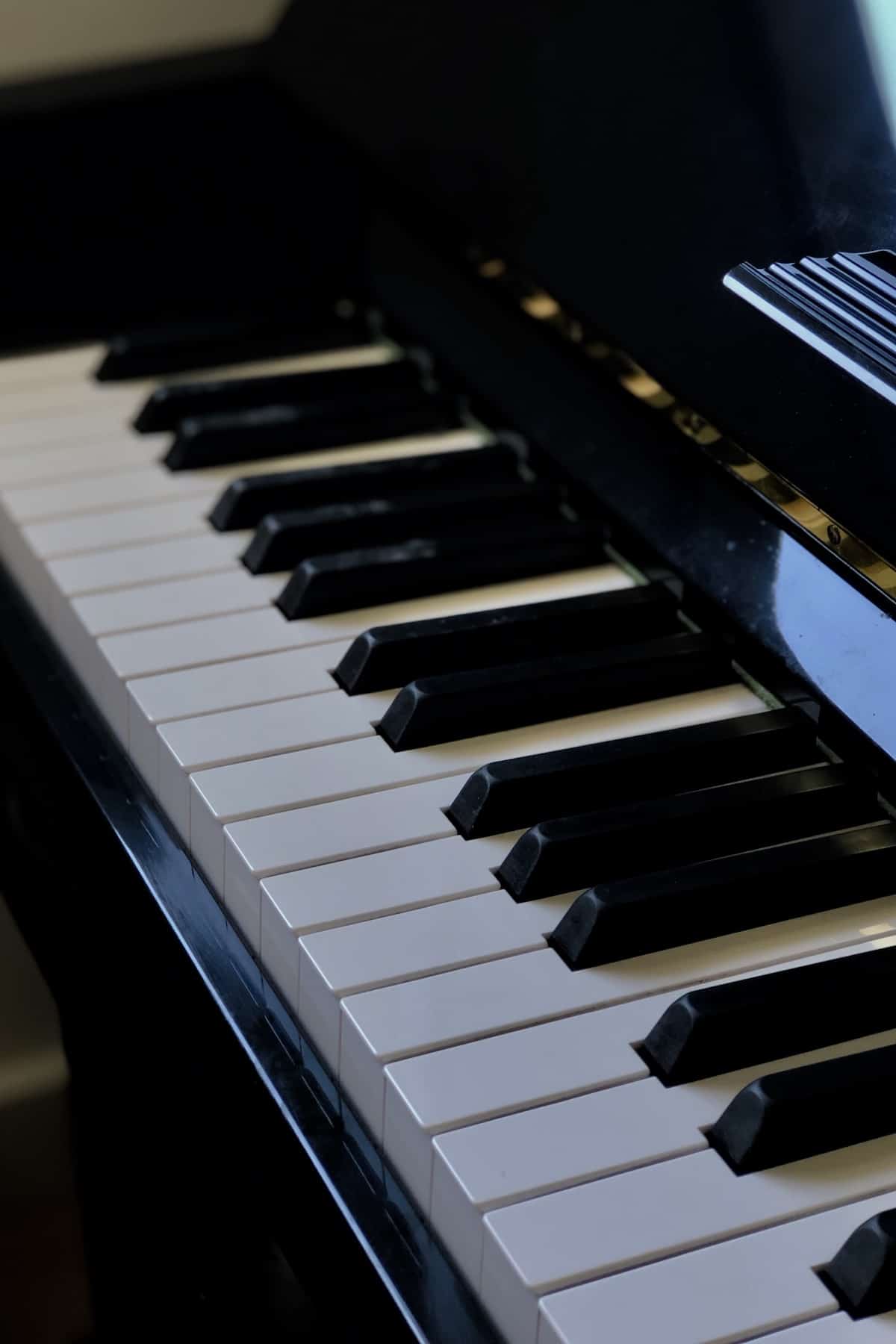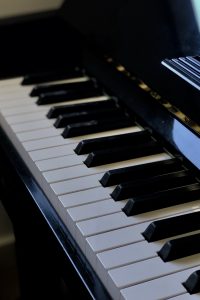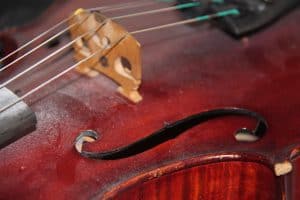How long does it take to learn piano? Well first you must decide what level you’re aiming for! The length of time it takes to learn piano all depends on whether you want to be a casual player, a music teacher, or a concert pianist. The time you devote to practice, the experience of your instructor, your motivation and your learning pace all factor into the time it will take to achieve your desired level.
If you’re simply looking to play one tune at a party or gathered around the Christmas tree, you can generally learn a simple song online in a matter of hours or weeks. To become a proper piano player, however, expect to take private lessons at least once a week and also practice for a minimum of 30 minutes each day for basic proficiency within a years time. For the aspiring concert pianist, expect it to take at least three years before more complex pieces can be learnt, and generally over ten years to play difficult pieces.

Learning Curve Depends on Target Level of Piano Proficiency
Before you begin, you need to ask yourself how well you want to play, what level you’re hoping to achieve, and what goals you have for playing. Consider whether your goal is to play professionally or to play for your own entertainment. Do you want to play classical music, jazz, modern rock, or do you want to play all genres?
The level you wish to achieve will determine the length of time it will take you to learn to play. You can start at the beginning, learning the scales and becoming a serious learner or you can sit at the piano bench and learn to play a short song in no time.
Songs such as Heart and Soul, Joy to the World, Chopsticks, and Fur Elise can be leaned in a matter of hours (or even minutes), depending on your pace. Learning to play the notes of a Beethoven piano concerto, however, might not be in the realm of possibility until you’ve been playing for many years. And there’s SO much more to playing piano than simply hitting the right keys. Professional concert pianists are continuously striving to develop and perfect their craft.
You’re never truly done learning to play the piano.
Age of the Piano Student
The time it takes to learn the piano also depends on the age lessons begin. As with any instrument, the earlier lessons begin, the better, but that’s not to say a retiree can’t start! There is no best time to begin lessons, but some piano teachers say that the ideal age to begin is between six and eight when children are more developmentally ready for formal learning and have the motor skills needed to move the fingers of each hand independently from each other.
Toddler Piano Student Learning Journey
For toddlers, their fingers can be too small to properly maneuver the keys; however, it doesn’t exclude them from learning. They can sit on the lap of an adult and lay their fingers over the adult’s hands as they imitate the movements. They can also learn by listening, and by learning about the patterns of notes and keys. Parents of toddlers learning piano should understand that it will likely not sound like much of anything for a few years (even with daily practice).
Children between the ages of three and five often don’t adapt to formal lessons as sitting still for any length of time can be challenging, Games are generally incorporated into the lessons to ward off boredom. While private lessons are an option, some piano teachers offer toddler-focused group lessons where a half-dozen preschoolers can learn together.
Toddlers need plenty of encouragement and accolades to feel they are accomplishing something. Of course, most toddlers aren’t able to read music so they will be learning by sight and memory. The best teacher for a toddler is one who specializes in teaching young learners.
Child Piano Learners Journey
There’s no magic age when a child should start with piano lessons, and much depends on their developmental level. The size of the fingers and their agility, their interest to learn, and their ability to read and comprehend a musical scale are all factors to consider. As with toddlers, parents with school-age children learning piano should understand that it will likely not sound great for a few years (even with daily practice).
Piano teachers say that the younger the child, the easier it is to learn to play. A book-based method of learning might not work with children, and that is something to consider. They may, however, be interested in watching videos of inspirational child piano players or in playing songs from their favourite movies or TV shows. The older the child, the more focused they generally will be.
Learning Piano as a Pre-Teen
A preteen who has never taken any musical lessons can learn the piano, and with motivation, can do so quickly. They may be able to play simple songs with basic proficiency of both hands within a year of taking private lessons. The ability to read music is no longer a roadblock and preteens are at the age when they become interested in music.
They may have peers who play the piano or other instruments, and their school might offer lessons. At the age when their friends are playing in the school band or orchestra, it piques their interest in playing an instrument as well. They may also be interested in playing in a band or emulating piano-playing YouTubers.
Teenager Piano Student Learning Journey
For teens, the piano is a popular instrument because musical awareness is becoming developed. They are at the age when they have the patience needed to learn the piano, and they have the maturity and focus. It’s also the age when some teens will decide they want a career in music or as a pianist. A teenager taking weekly lessons should be able to start learning whole simple songs within a few months.
Teens that are self-motivated to learn piano are willing to spend more time practicing. They also have better hand and foot coordination. Teens can learn quickly, and overall they do well learning to read music. While the teenage years could be considered a late start for something like the violin, starting piano as a teenager is certainly reasonable.
Starting Piano As An Adult Learner
You’re never too old, and adults can learn to play the piano even if they’ve never picked up an instrument. It might take more patience to be an adult learner because as adults we are accustomed to being good at the things we can do. It’s important to not frustrate and not give up. It is a rewarding feeling when the first song is played from beginning to end.
The time it takes for adults to learn to play piano is highly variable. Some adults are rule-followers and will dutifully practice for a half-hour every evening. Others will only play during their weekly half hour lesson! Just remember…practice makes perfect. Without daily practice, it’s hard to progress beyond very simple tunes.
Taking Time to Learn Piano At Your Own Pace
How long it takes to learn the piano is completely up to you! Practice makes perfect, and it is especially true for the piano. Make time each day to practice and to watch or listen to inspirational piano players.
The best way to learn the piano is by taking lessons from a qualified teacher. There are many online classes and videos available, but they can never replace an in-person lesson. A piano teacher can guide your hands and show you pedal work. A video can’t provide you with the hands-on instruction that is crucial to mastering the piano.
The piano is a beautiful instrument, and the range of sound makes it an ideal choice for those wanting to learn to play a variety of genres. The keys and pedals can look intimidating, but learning to play the piano is a rewarding experience and one you’ll enjoy for a lifetime. Learning to play is not as daunting as it looks, and with proper instruction, it will be a smooth journey.



